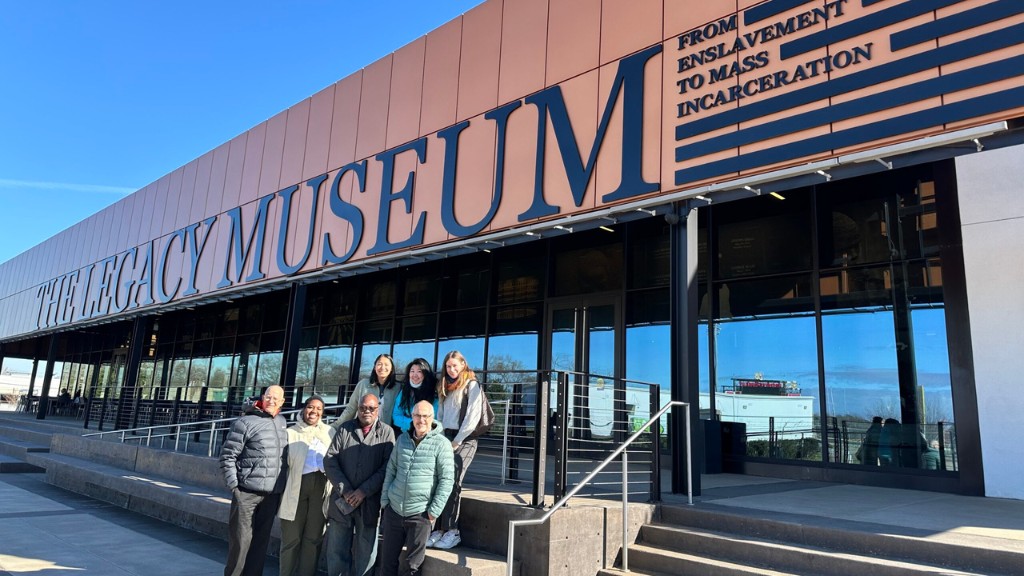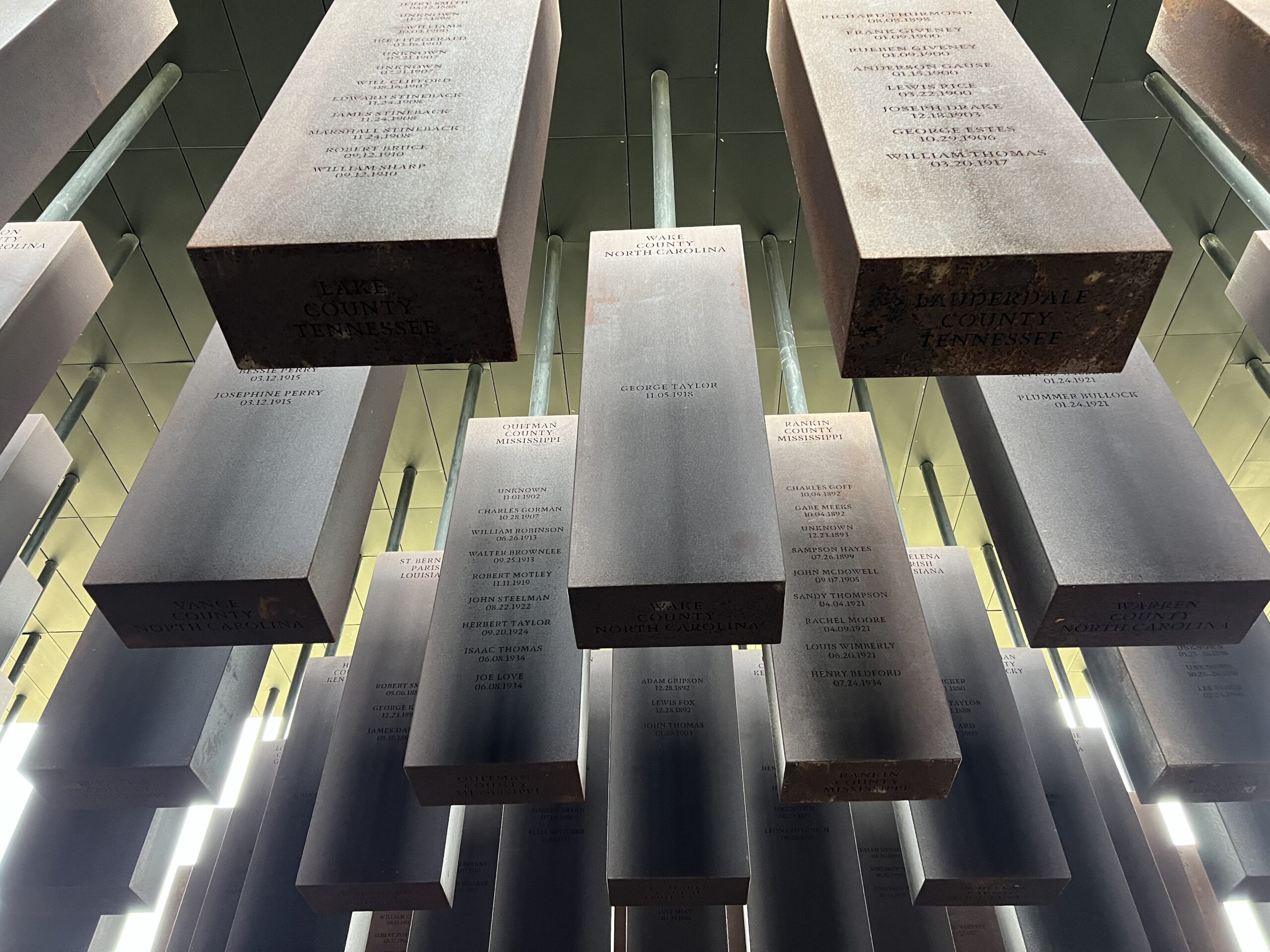
Reflections from IJDH Staff Attorney Kristina Fried
Two weeks ago, IJDH and BAI staff visited the Legacy Museum in Montgomery, Alabama thanks to the generosity of one of our long-time donors and the Equal Justice Initiative. The museum, founded by former IJDH Board Member Bryan Stevenson, documents the United States’ horrific history of racial injustice and the continued struggle to advance racial equity. Our visit came just three days after Martin Luther King Jr. Day – an important reminder of the courageous and dangerous work he and others before and after him did, and still do, in the pursuit of equal rights and justice for all. Honoring Dr. King’s legacy means continuing that fight ourselves, both in the United States and in Haiti.
“Whites, it must frankly be said, are not putting in a similar mass effort to reeducate themselves out of their racial ignorance.”
Martin Luther King, Jr., “Where Do We Go from Here: Chaos or Community?”
As a member of the IJDH legal team for 2.5 years and a longtime advocate for racial equity, I saw this visit as an important opportunity for the IJDH team members to continue the work of reeducating ourselves out of racial ignorance. The Legacy Museum connects the dots from the very first slave ship to leave Africa; through the economic development of New England, the rest of the United States, and Europe on the backs of slaves; through the era of racial terror lynchings and segregation; all the way to today’s mass incarceration of Black Americans. The museum demonstrates that these weren’t isolated acts by bad people, but centuries-long systems of oppression that have been deliberately transferring power and wealth from Black communities in order to further global white supremacy. Recognizing this – and how it shapes our own privileges – was as much an emotional journey as it was an educational one.
As we walked through the museum, we were confronted with our own country’s past and present of anti-Black racism. But we were also struck by the deep historical ties to Haiti’s fight for liberation and self-determination. As Frederick Douglass observed, “[Haiti] has taught the world the danger of slavery and the value of liberty,” but also “Haiti is black, and we have not yet forgiven Haiti for being black or forgiven the Almighty for making her black.” As the first free Black Republic, Haiti posed a threat to the slave-holding countries whose prosperity and power depended on the continued subjugation of Black people. For that audacity, Douglass added, “[even] after Haiti had shaken off the fetters of bondage, and long after her freedom and independence had been recognized by all other civilized nations, we continued to refuse to acknowledge the fact and treated her as outside the sisterhood of nations.”

Ultimately, the systems of oppression that kept Black people in the United States from learning, earning and voting their way out of poverty are the same systems of oppression that have kept Haiti poor and unstable. The Independence Debt that France coerced from Haiti in exchange for its independence is at the core of these systems of oppression, and the fight for restitution of the debt is essential to the struggle for democracy and stability in Haiti.
Last year IJDH and BAI began investing more efforts into the restitution struggle. As the global fight for reparations advances, we believe there is a historic opportunity for Haiti’s unique legal claim to advance the broader reparations effort, while also enlisting the broader movement’s help in restoring the democracy Haiti needs to assert its restitution claim. The BAI’s Mario Joseph spoke on Haiti’s claim at the UN, and IJDH’s Brian Concannon, Board Member Irwin Stotzky, and Advisory Council Member Charlot Lucien all addressed a symposium on the restitution claim at the University of Miami. We published a law review article to serve as a roadmap for integrating Haiti’s restitution into broader reparations efforts. If you want the short version – read this OpEd.
At IJDH, we hope our work allows you to join us in our journey of educating ourselves – and the public – out of the racial ignorance underlying the treatment of Haitians by the international community. Inspired by freedom fighters in Montgomery, Alabama, and Haiti, we hope that you join us in concretely transforming the centuries of racial injustice by supporting Haitians’ fight for democracy and sovereignty.
In solidarity,
Kristina Fried
IJDH Staff Attorney